After toiling away at traditional office jobs, Lina Bautista Mendoza chased an opportunity to the Amazon rainforest and its Indigenous communities. Born and raised in Bogotá, Colombia, Lina grew up immersed in nature. After leaving her wildlife-filled mountain town, Lina had a strong desire to study biology and understand the biodiversity of her country. While studying at the Universidad de los Andes, she took a class in environmental management, which first introduced her to environmentally-based business models. And so, the adventure to find her true calling began.
After graduating, Lina worked for many years in environmental consulting firms before realizing that she felt unfulfilled. “I wasn’t happy,” Lina said. She explained that the strict rules and enormous amount of time spent indoors threw her off balance, making her feel lost. “But then I was offered a job as a science teacher…It was the most difficult job ever!” Lina taught children about nature, attempting to command their attention by surprising them about the biologically wondrous world of plants and animals. Although difficult, that teaching opportunity first introduced her to the importance of committing herself to living with purpose by helping and serving others.
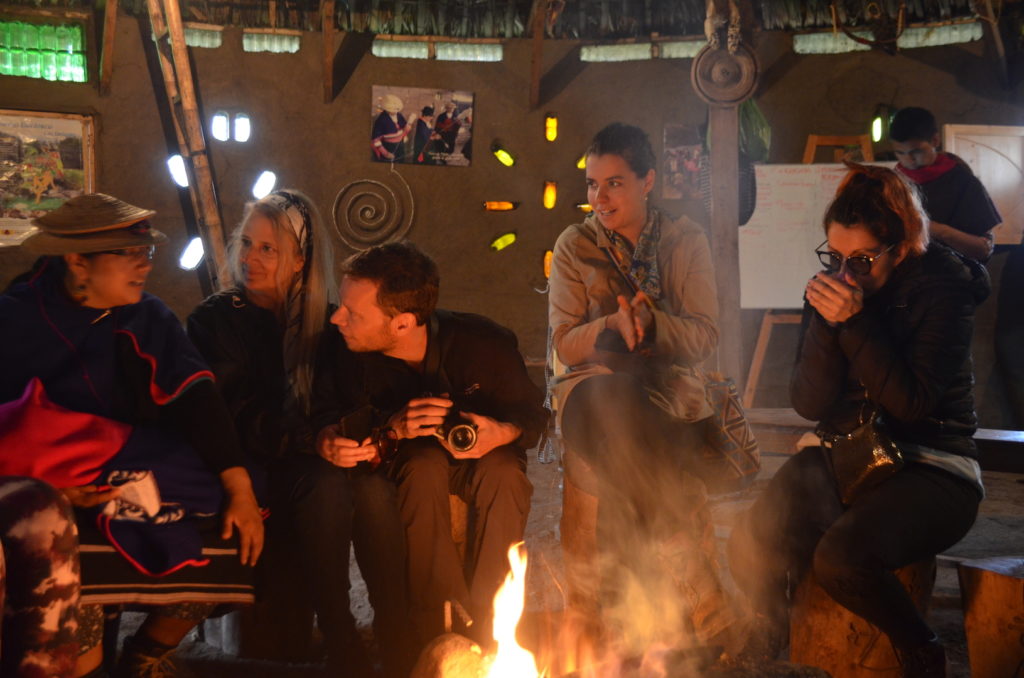
Still, in that traditional classroom with a set and square curriculum, Lina felt constrained. Luckily, she stumbled upon an opportunity to teach an Indigenous community in the middle of the Amazon. There, Lina was introduced to a new way of teaching, one that synthesized a Western curriculum — full of biology, chemistry, mathematics, and basic English — and traditional Indigenous knowledge. And even though she was the teacher, Lina learned so much from others during her time there. “In every situation, I was the student of one of my students, coworkers, or the people of the community, especially the women.”
Lina had an enormous smile on her face as she described the relationship between the locals and the people outside of their community that they would come into contact with. “They share their culture so authentically and with lots of fun. When we share with different cultures from different ways of thinking, living, and ways of seeing the world, we can consider the universe and nature from a totally different perspective.”
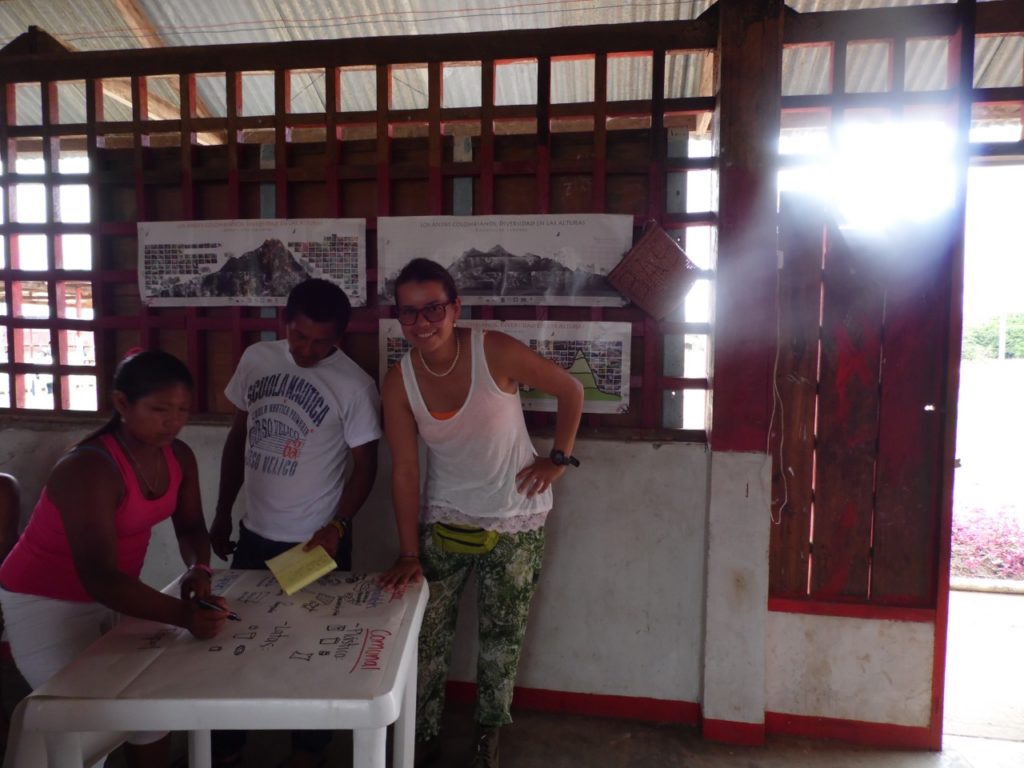
“At the beginning, everything was so confusing and their words sometimes didn’t make any sense at all, especially from the elders — they speak nature’s language.” Lina began to reminisce on her time learning from the elders. “Silence is one of their languages, and my impulsiveness and impatience did not allow me to understand the depth of their teachings. I had to carefully observe those other messages that are not felt by the senses.”
“At the beginning, everything was so confusing and their words sometimes didn’t make any sense at all, especially from the elders — they speak nature’s language.”
It was there in the secluded rainforest that Lina found a new goal of finding her own dream: building bridges between different kinds of people and cultures to not only solve our climate crisis, but to deepen human understanding. Lina had a desire to take that knowledge from the Indigenous communities to understand and source her own life-long journey.
Eventually, Lina was able to learn from them by connecting to their spiritual perspectives. With her perspective-shifting experience in mind, Lina founded Biotácora. Biotácora is a Colombia-based group working to culturally connect different kinds of people through travel and exposing them to the exchanging of ideas, cultural experiences and ecotourism.
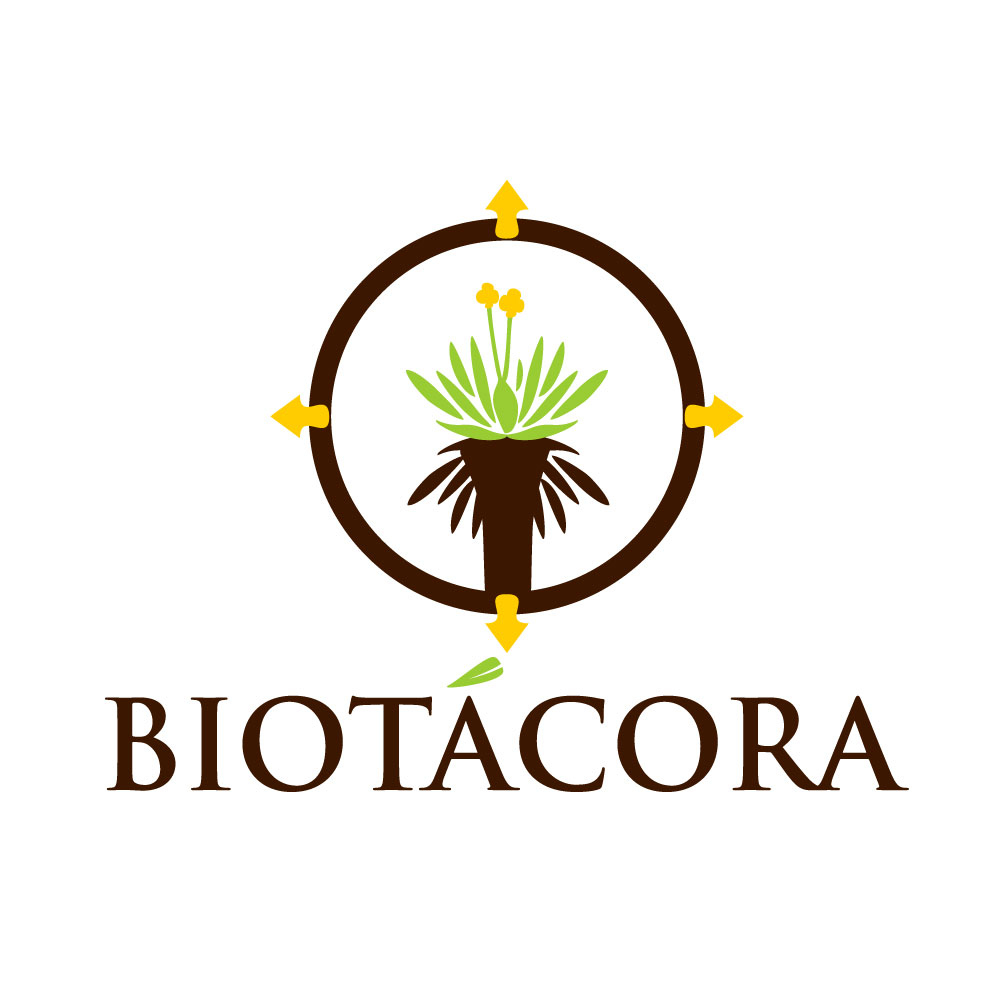
Lina is on her third career at a rather young age, with a newly completed masters degree in tow, but she is truly pursuing her purpose and that which gives her soul life. Biotácora places heavy emphasis on creating a truly harmonious connection both with the natural world and with the Indigenous communities that still inhabit “the nature” in rural Colombia.
Lina works in her corner of the world to facilitate cultural exchange through green tourism, bringing communities from the far reaches of the world together through an appreciation of the earth. “Green tourism provides a different kind of path to show, through storytelling, outsiders and Colombian natives, helping them understand the variety of communities and to have shared experiences with them.”
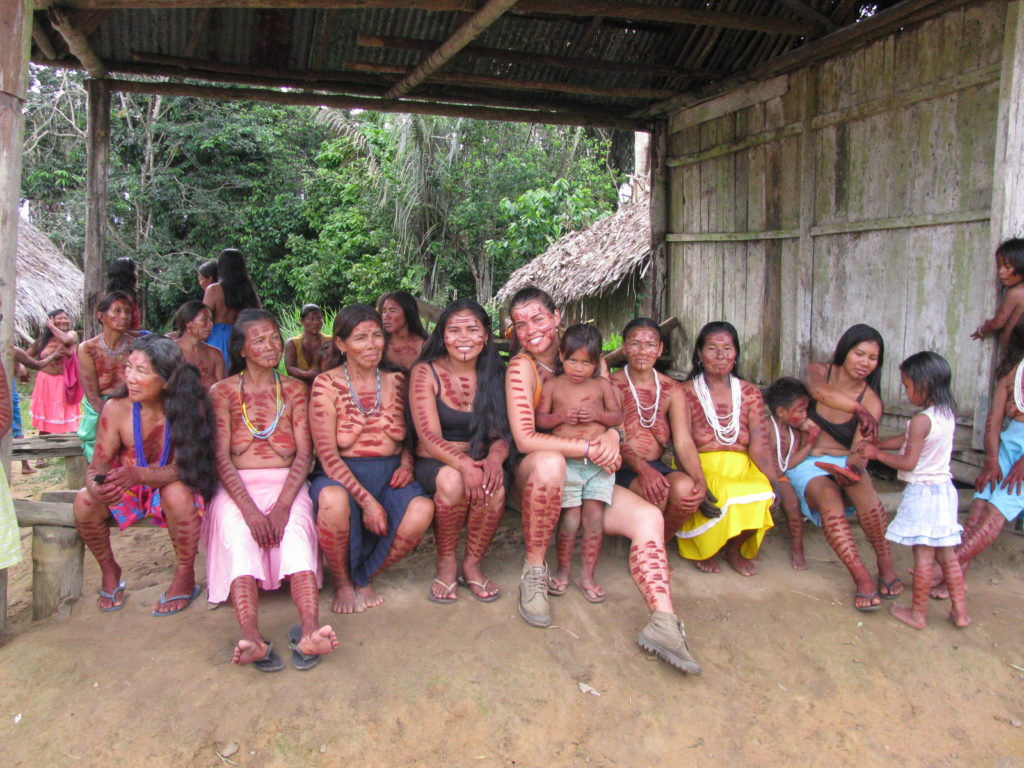
Through Biotácora, Lina collaborates with local operators in all six regions of Colombia. Currently, given the pandemic, experiences are limited, but Lina’s friends and allies have advised her on how to safely have these experiences across every region. Lina explained how complex Colombian culture is; there are over 70 languages spoken, 65 of which are Indigenous, so it is often hard for even Colombians to understand each other.
Lina continued, describing how the Indigenous peoples have maintained the original relationship between human beings and nature. “Many native people say that climate change is a matter of disharmonization with nature….Recovering this relationship will lead us to be more conscious consumers and, like nature itself, avoid feeling any greed, that feeling to buy more and more, to instead consume just what is necessary for our well-being.”
Lina believes that rediscovering a harmonious relationship with nature may be the answer. “We learn from each other by seeing our common world; we are all from the same earth, the same nature,” Lina explains. “Having the opportunity to work hand in hand with communities from all over Colombia and to be an ally in the construction of their well-being and the conservation of their territories is most definitely my proudest accomplishment.”
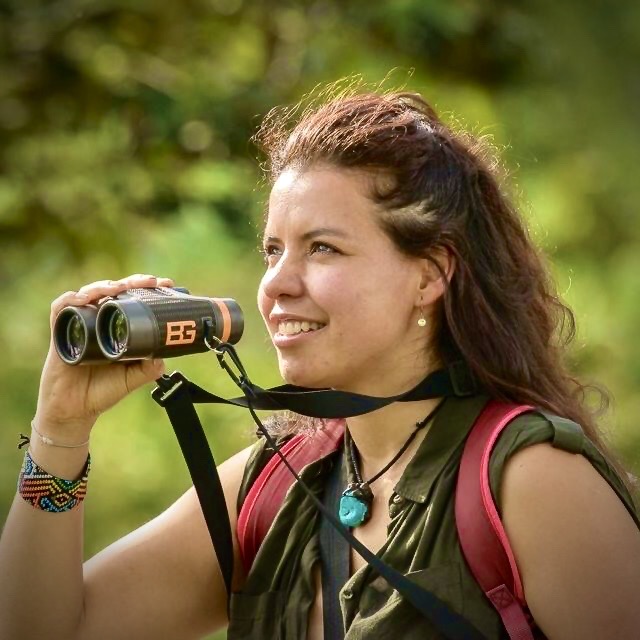
This sentiment is directly related to how Lina views the Global Climate Pledge. “My pledge has been to share with others this natural knowledge to sow seeds in all the visitors, to disperse them in many parts of the world so that harmony grows everywhere and the knowledge of the original peoples of the world expands.” In Lina’s eyes, this Global Climate Pledge is of the utmost importance, “A mass commitment is necessary so that humanity can create a North Star for all to collaborate in an articulate way to bring us to our joint purpose: mitigating climate change.”
To step into this mass commitment, Lina recommends being conscious about every decision you make. “The danger comes when we diverge from our natural paths, either by chasing success or money. You lose your clear vision, your purpose, what your best work could be; your best version of yourself.”
“A mass commitment is necessary so that humanity can create a North Star for all to collaborate in an articulate way to bring us to our joint purpose: mitigating climate change.”
One way to clear your vision, Lina mentioned, was gaining perspective on what you consume. She highlighted that good nutrition is important, both in color and in types of foods, but also in terms of retaining consciousness about where those items come from. This and other focusing sentiments were direct takeaways for Lina from her time with the Amazonian tribe — she learned about the importance of centering herself and focusing on forging forward and carving her own path.
“We don’t need to have more; we need to be better human beings, to be our best selves in order to serve others,” Lina finishes. “Nature teaches us how and rewards us for it by giving us well-being through a sense of belonging to the earth. It’s not important to have, but to be.”







